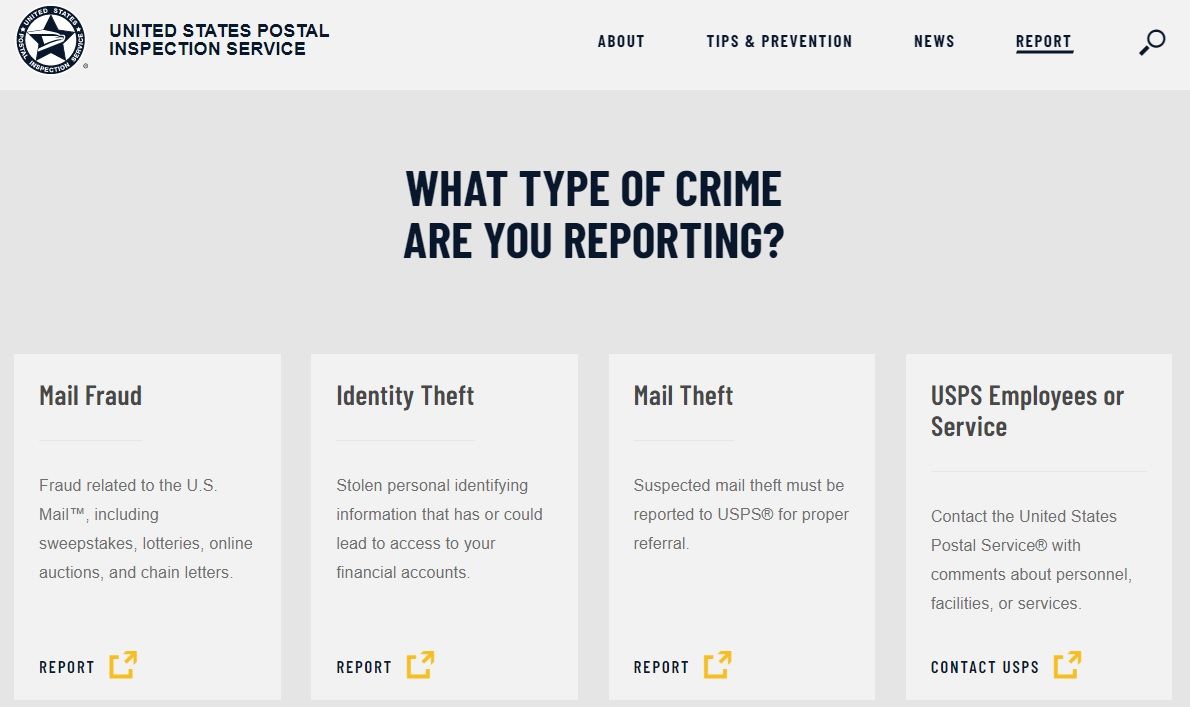Mail scams aren't going away anytime soon, and unfortunately, they get worse during the holiday season. We tend to see the same secret sister gift exchanges or package delivery phishing scams resurface each year, too.
Studies suggest Americans will spend over $400 billion in total on holiday gifts, goodies, and travel, making it a big target for scammers. So, here's how to spot mailing scams during the holidays and keep yourself safe.
Watch Out for "Secret Sister" Gift Exchanges

One of the most popular mail and holiday scams from the last few years is the "Secret Santa" or "Secret Sister" scam that originated on Facebook back in 2015.
The "Secret Sister" exchange promises you'll get between 10 and 30 gifts, potentially over $300 worth of goodies, as long as you mail someone else a $10 gift to start.
Stay away! It's basically a secret Santa exchange turned into a pyramid and phishing scheme that you want no part of.
This scheme often asks you to forward personal details, including your name, address, email, phone number, and other private info to ensure you'll get gifts delivered to your house. In fact, you just gave a scammer a bunch of very personal details they'll use to access or log into a number of your accounts and continue the scam.
Don't fall for this or any gift exchange that isn't in person with your friends and family.
Avoid "Confirm for Delivery" SMS Package Scams
#scam This person claims to be the Best Buy member to confirm the delivery which my mom didn’t actually buy from Best Buy. Do not fall for these types of texts even if you didn’t know them. pic.twitter.com/DeEOI8Rp4x
— Avro the Fox (@RagingFurry_Fox) November 3, 2018
With more people shopping online than ever before, especially while dealing with Covid-19, online shoppers are a huge target. This will continue throughout the holiday season as millions of packages are delivered.
If you get any random and unexpected text message that ask you to click on a link, it's most likely fake and a scam. These messages often pretend to be from Amazon, FedEx, UPS, USPS, DPD, Hermes, and more, but are actually from scammers and could download malware to your device.
Do not click on any links—even any asking you to "set delivery preference" or "confirm for delivery".
A lot of people get packages daily, so it's easy to fall victim. Most of these will say you paid for shipping but ask for your credit card info to confirm the shipment or delivery slot. Never give anyone your credit card information unless it's a website you completely trust.
Scam Apps and Fake Websites
Fake websites or fraudulent apps trying to sell you goods are everywhere. According to digital security provider Avast, nearly 60 percent of Americans fell for at least one type of phishing scam in 2019.
While these aren't typical mail scams, most claim to ship you a product or service. In a phishing scheme, you get a text or email asking for payment information, your address, or other personal information that will be used against you. These are scam shipments or even completely fraudulent services that look like the real thing.
You can see a list of similar scams at the Better Business Bureau scam tracker site.
Watch Out for Mail Fraud

Package delivery and online shopping are the big targets of late, but threats both old and new are everywhere these days. Watch out for these:
- Mail fraud against veterans or the elderly
- Sweepstakes, lottery, or winner scams
- Employment (or unemployment) fraud
- Land sale letter scams
- Home improvement or repair scam flyers
- Health insurance fraud
- Fake government mail schemes
- Shipping or package notice links
- Change of address scams
- Holiday charity fraud
Those are just a few of the many potential mail scams or schemes you could find in your mailbox during the holidays. Keep in mind that not everything is a scam, and there are dozens of real charity events, home improvement flyers, unemployment, and IRS letters going out daily.
Don't always assume the worst, but if something looks fishy, includes a link to follow, or wants you to enter personal information of any kind, take a second look before you get in trouble. Trust your instincts: if something doesn't seem right, it probably isn't.
Digital Credit Card Skimming
Credit card skimming is nothing new, but the thieves who do it are getting smarter. When you swipe a credit or debit card at a gas pump, ATM, or vending machine, there's always a small chance of this happening.
Thieves install reading devices on top of legit readers, like a gas station payment terminal, and your information is "skimmed."
However, this same concept went digital, and several big-box stores like Target and Macy's were attacked in 2018-19. Card information was skimmed digitally, so when you're ordering Christmas presents, you may also be handing over financial data to a cybercriminal.
Unfortunately, average consumers have no way to know if this will happen on any given website. Here are a few tips to potentially protect yourself:
- Use a credit card instead of a debit card for more protection
- Don't save your credit card information on retail sites
- Enable purchase alerts on all your credit cards
- Disable international purchases on all credit cards
- Use a third-party payment method like Apple Pay, Google Pay, or PayPal
- Only make purchases from your home or smartphone network, never on public WiFi where your payment could be intercepted
Tell-Tale Warning Signs

There are several easy ways to spot a scam from a mile away, as long as you're looking for them.
If you see a huge discount on a hot item or a deal that's too good to be true, it probably is.
Any website that doesn't have a privacy policy or looks questionable (low resolution graphics or stock image, for example) should be avoided. If the site doesn't have a contact form or physical street address listed anywhere, that's suspicious.
Check for an SSL certificate: that is, if the site is secure and displays a padlock symbol and HTTPS in its URL.
Related: Myths About SSL Certificates You Shouldn't Believe
Spelling errors and shoddy grammar on a retail website, email, or text message is a dead giveaway.
Any unsolicited emails, mail, or text messages that ask you to click a link, download an app, or call/text a number is bad news.
Stay Safe During Online Shopping
You can order almost anything and everything for delivery, which is convenient yet gives thieves more opportunities to scam you. Online orders and mail delivery fraud is a potentially easy way to trick people into handing over important details or even money.
So stay skeptical and take sensible precautions. Share any scams you spot on social media too: the more examples people have, the less likely they are to fall for them.
